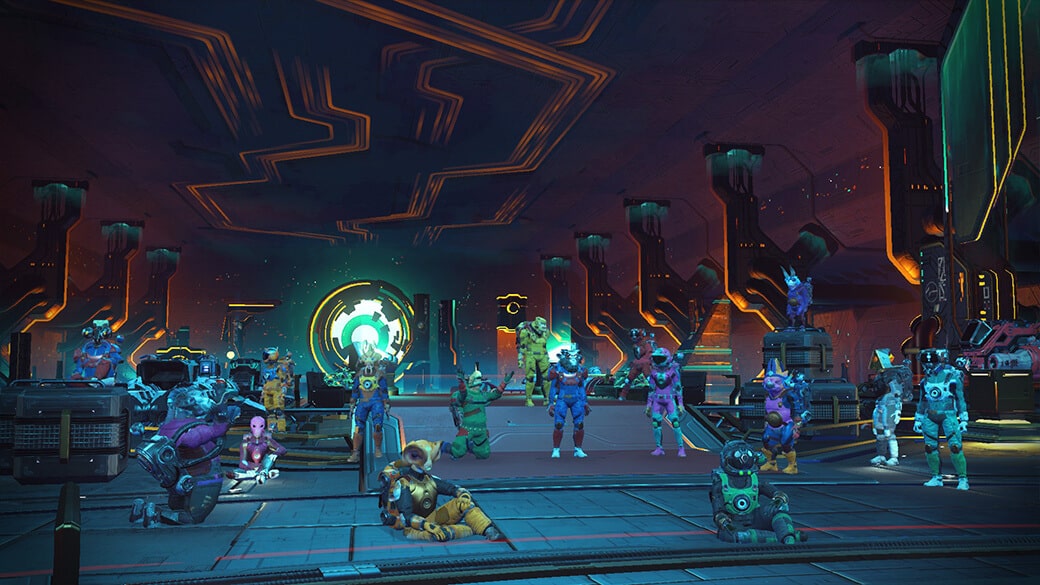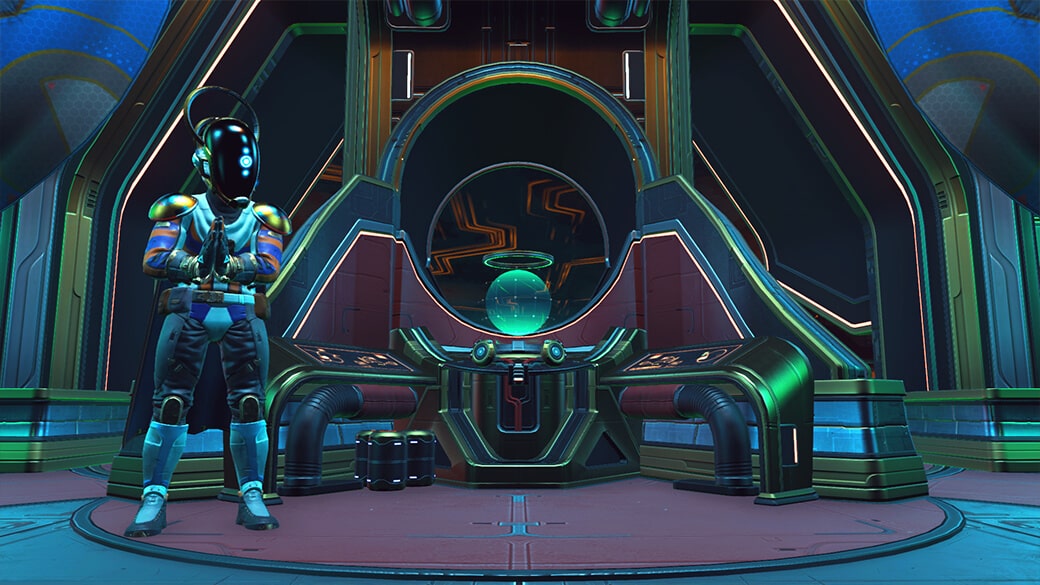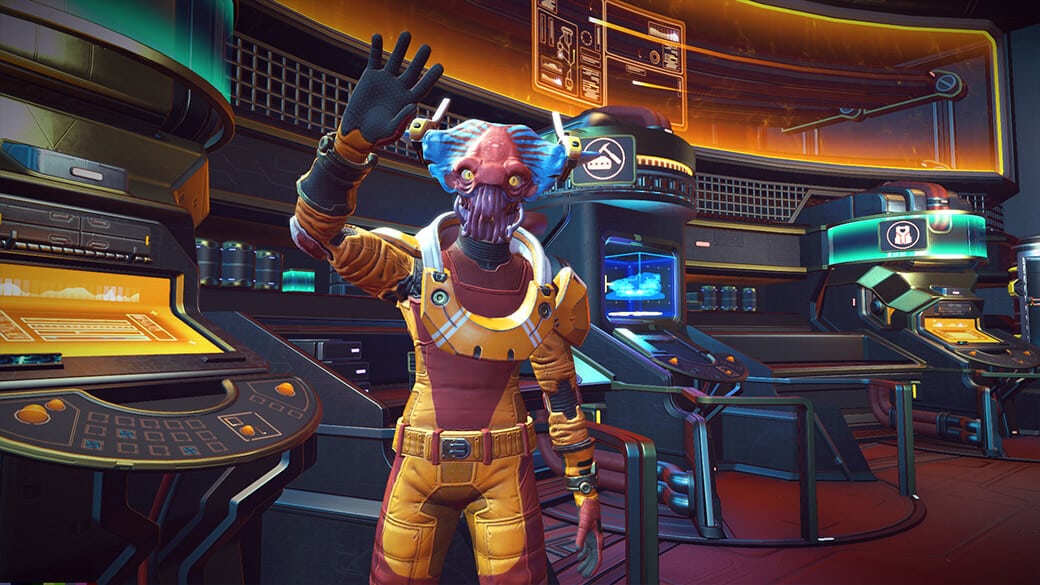Before No Man’s Sky was released, Hello Games’ Sean Murray talked about it like it really did contain an entire universe, as if the experience would never be the same from one planet to the next. The reality of its launch is well-known – the game that had flourished in the minds of players, fed by interviews and slivers of preview footage, didn’t match the one on our TV screens.
Backlash followed, but it mostly served as a cautionary tale about the dangers of selling the vision of a game rather than the game itself. There was an expectation that the studio would quietly abandon the game and move on. But that wasn’t what happened. Instead, after months without comment, the team announced something that few saw coming – they planned to release a big update for the game.
While it didn’t provide an immediate fix, Foundation showed that Hello Games hadn’t run away from No Man’s Sky and provided players with some significant improvements. Foundation introduced features such as base building, the ability to purchase freighters, and new game modes, adding fresh variety to what could feel like an all-too-realistic representation of the vast emptiness of space.
Improvements continued with the release of further significant updates to the game – Atlas Rises brought over 30 hours of story content. The Abyss expanded the narrative while introducing depth, literally and figuratively, to the oceans of No Man’s Sky. The Atlas Rises update also introduced multiplayer, a system that would be refined in the NEXT update and further enhanced in Beyond. When it was released in August, Beyond brought fresh attention to the game, with many players feeling that the update finally delivered on the original promise.
Beyond features a lot of substantial updates – graphics have been improved again, the narrative and tutorials have been further streamlined, and elements such as crafting and inventory space have been refined. Multiplayer is also much more developed. The eight major updates since No Man’s Sky’s 2016 launch have fundamentally transformed the game.
This isn’t just the redemption tale of one game. It tells us something about the medium of video games itself. This malleability sets gaming apart. If a book or film fails, the product that’s released remains the final version. There’s no going back to development and patching in fixes for missing elements or hasty construction. Sure, remakes and new editions can be released, but they don’t replace the original in the same way that a patch or update does. They don’t change the very fabric of the work itself.

TV shows have done something similar in turning around weak beginnings, going on to become beloved pieces of pop culture. Parks and Recreation didn’t arrive in the form that earned it so many fans. Its tone was initially criticized for being too dark, and Leslie’s character wasn’t yet the dynamic go-getter that we came to love. Parks and Recreation fixed these issues, becoming the show so many people adore today. But those early episodes still exist, complete with the flaws they had when released, and they do still have an effect on the series as a whole. Someone might watch the early seasons, think that’s how the rest of the show is, and abandon it, without realizing that the show improves on those issues.
Language like “the definitive version” brings to mind things like a director’s cut of a film, which adds content and can better represent the creator’s original vision than the cinematic release might provide. However, this is an additional version of the film, not a fundamental change of the initial release. Much fewer people are likely to see the new version than would see it in theaters or the initial home release.
In contrast, a patch or update rewrites the very code of the game, adding to or changing its fundamental building blocks. All of the updates that have added features and improvements to the game make up what we now call No Man’s Sky. The narrative that was only added when the developers saw that players were crying out for it and the multiplayer features that have developed over the past three years are as much a part of the game as the content it was released with.

If a player that’s never picked up the game before comes to it now, this will be the only version of the game they’ll know, aside from the secondhand experience of reading older articles and posts. These features could also change the perspectives of players who were unhappy with the initial product.
The essential identity of No Man’s Sky has shifted, becoming part of a new one shaped by the developers and player feedback. Hello Games hasn’t just fixed bugs or added in a small amount of additional content. The studio essentially remade their game over the course of three years.
Patches to fix game-breaking bugs or to add the odd feature aren’t new to video games. Some games that are nearly unplayable at launch have recovered thanks to these efforts. Destiny had a similar start to No Man’s Sky. Players experienced bugs and gameplay issues and felt that the game they received didn’t live up to the one they’d been promised. The bugs were fixed, and eventually the game became less sparse through regular updates and the release of the expansion, The Taken King. While Destiny’s transformation wasn’t as complete, and it’s still arguably considered to be a failure compared to the expectations, many of the off-putting aspects of the original no longer exist. Anyone coming to the title now will experience it without the flaws, which has given it a new lease on life.
There’s no other medium that offers this kind of possibility. You can’t add a scene to a movie after it’s hit cinemas or rewrite a book’s chapter after it’s arrived on the shelves. Hello Games’ work is more than the story of a game and its changing fortunes. It teaches a larger lesson about the medium’s potential to improve.





Published: Nov 30, 2019 01:00 pm